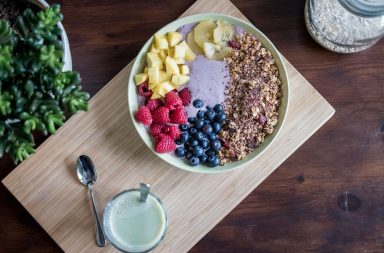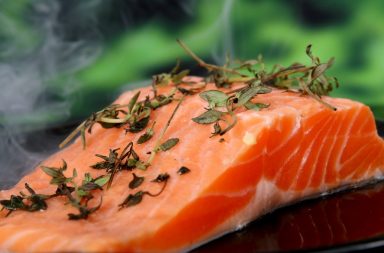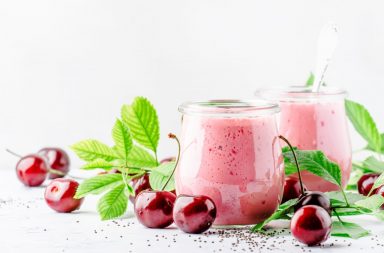When you talk about your favourite fruits, prunes might not immediately spring to mind. You might think raspberries for their sweetness, or bananas for tryptophan levels. But in actual fact, these little dried plums actually provide a lot of health benefits! The question is, do you buy dried or tinned prunes, and are tinned prunes good for you?
Tinned fruit sometimes gets a bad reputation, with many of us assuming that tinned foods might be less healthy. Whilst it’s true that some tinned foods are higher in sodium and preservatives, tinned fruits such as prunes, and apricots are actually exceedingly popular.
So, are tinned fruits still healthy? And can a shrivelled fruit such as a prune, really pack such a nutritious punch?
Well, we’re going to take a closer look at the health benefits of prunes, and find out if tinned prunes are good for you!
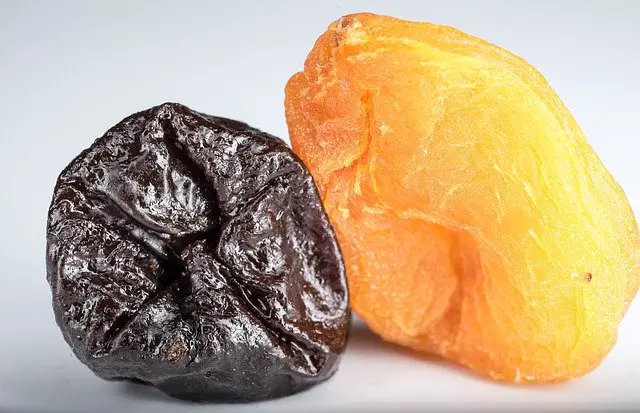
Photo credit: LeoNeoBoy via Pixabay
What are Prunes?
Prunes are a popular dried or tinned fruit that are known to provide a wide range of nutrients. They are, simply put, plums that have been dried out.
Many people buy dried prunes in packets, however, you can by tinned prunes that come in prune juice or syrup.
Prunes are a relatively cheap fruit when bought tinned, and have been used for many years to aid digestive problems. They are also a popular fruit among older people for this reason, as when eaten regularly then can help prevent constipation.
So, do prunes really help with digestive problems? And what other health benefits can they provide?
Well, let’s take a closer look!
What are the Health Benefits of Prunes?
Prunes have been a popular fruit for a long time, due to their high fibre and vitamin contents. Not only that, but prunes are easily purchased and don’t change seasonally. This makes them a reliable source of nutrients year-round!
So, what exactly are their health benefits? Let’s find out!
Prunes May Help Prevent Digestive Troubles

Photo credit: Alicia Harper via Pixabay
Prunes are perhaps most famous for relieving constipation. Yes, not the most glamorous claim to fame, but impressive all the same.
The high fibre content in prunes helps move waste through your digestive system. The same is said for prune juice, making prunes tinned in juice an extremely effective choice to keep you regular!
Prunes also contain sorbitol, a sugar-based alcohol that works as a natural laxative. So, if you’re looking for a natural laxative, prunes might be the way to go. It’s worth noting though that they are most effective when combined with good hydration. So, keep drinking your 1 litre of water a day!
9 Benefits of Drinking 1 litre of Water on an Empty Stomach!
They are Rich in Antioxidants and Vitamins
Prunes really are packed with all the nutrients, particularly antioxidants! The antioxidants found in prunes are thought to promote healthy bones. Not only that, but they also keep your heart healthy and reduce cell inflammation too!

Photo credit: Oruc Mahmood via Pixabay
Prunes Can Help to Lower Blood Sugar
Despite being a sweet fruit, dried and tinned prunes can actually help to lower blood sugar.
Unlike most fruits, which can cause a spike in sugar levels, prunes don’t seem to have this effect. In addition to this, it is thought that eating prunes regularly might lower the risk of diabetes.
Can Prunes Improve Vision?
Yes, dried, and tinned prunes might actually help improve your vision!
Ok, so we’re not claiming that eating prunes will mean you no longer have to wear glasses. But prunes are high in Vitamin A, which contributes to healthy eyesight. Regular consumption of Vitamin A might also reduce the risk of suffering from cataracts and even night blindness – pretty amazing!
Prunes: Easy to Include in a Healthy Diet
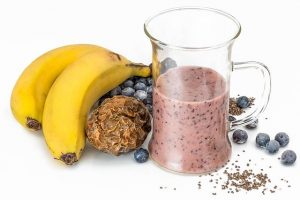
Photo credit: Steve Buissinne via Pixabay
Both dried and tinned prunes are easy to add to your diet, making them a convenient source of nutrients.
You can enjoy dried prunes as a snack, or tinned prunes as part of your breakfast. In fact, prunes can even be added to savoury meals such as pasta or blended into a smoothie!
So, as you can see, both tinned and dried prunes contain many health benefits. In fact, it’s clear why they are such a popular fruit!
But are there any differences between dried and tinned prunes? Are tinned prunes still good for you?
Tinned Prunes or Dried: Which is Better?
When it comes to buying fruit, many of us now choose to opt for dried over fresh. This is down to the fact that it keeps longer and is easier to pack in lunches or as snacks. Unfortunately, dried fruits are often more expensive, and the same can be said for prunes. In comparison, tinned prunes tend to be cheaper – but are they healthier?
Well, when plums are dried to make prunes, all the nutrients remain in the fruit exactly as they were beforehand. If anything, the nutrients increase. Why? Well, dried fruit tends to contain high amounts of fibre. It is this high fibre content that makes prunes so popular!
So, do the nutrition values remain the same in tinned prunes?
Well, yes, if the prunes are tinned in prune juice. In fact, prunes tinned in prune juice may be even better. Prune juice is again, packed with the same nutrients that can assist with constipation and healthy digestion.
Some tinned prunes, however, come in syrup. In this case, the syrup can increase the level of sugar, making them a less healthy option. So, it’s best to choose tinned fruit that is canned in natural fruit juice.
Overall, then, both dried and tinned prunes are equally good for you if they come in natural fruit juice. In fact, lots of tinned fruits are extremely good for you, particularly popular fruits such as apricots!
So, what other tinned fruits can be enjoyed as part of a healthy diet?
Are Tinned Apricots Good for you? What other tinned fruits are there?
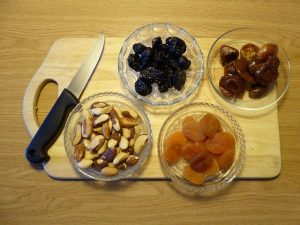
Photo credit: Iris Hamelmann via Pixbay
Another extremely popular tinned fruit is apricots. Apricots are sweet, tasty and can be enjoyed alone or added to smoothies, pancakes, and porridge!
In fact, did you know tinned apricots might actually be more nutritious than fresh? Tinned apricots can actually contain twice the amount of vitamin C and calcium than the fresh fruit.
Tinned pineapple is also a great source of vitamins and fibre, and is also increasingly popular. Fresh fruit such as pineapple can often end up being wasted, particularly if you are eating it alone!
Peaches are also regularly enjoyed tinned and contain equal amounts of nutrients to their fresh counterpart. Again, tinned peaches are great to add to smoothies and oatmeal, and mean you don’t have to remove the stone!
It’s important to remember that tinned fruit is best bought in natural fruit juice. Many canned fruits come in syrup with high sugar contents, so be sure to check the label!
So, we know the benefits of enjoying tinned fruit! We also know that there are numerous health benefits to enjoying tinned prunes – but are there any side effects?
Let’s find out.
Are there Side Effects to eating Tinned Prunes?
Prunes are a popular fruit for a reason! We know that they can aid digestive troubles, and help us maintain a healthy heart and strong bones.
But are there any side effects of eating prunes? Well, as mentioned before, if prunes are eaten in large amounts, they can cause an upset stomach. The high amount of sorbitol and fibre found in prunes can trigger diarrhoea. Luckily, prunes come with a recommended amount, which is roughly four a day if you aren’t used to eating them!
Not only that, but prunes are actually quite high in calories. With that in mind, they are best enjoyed in moderation – as with any fruit!
So, it turns out tinned prunes are good for you! Especially when eaten in moderation, as part of a varied diet. The health benefits of prunes really are exceptional! Of course, lots of fruits provide beneficial properties for our bodies, such as bananas and their potential to ease arthritis!
Food Myths Debunked: Are Bananas Good or Bad for Arthritis?
